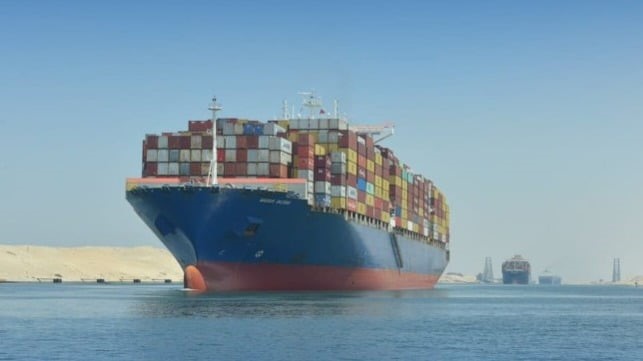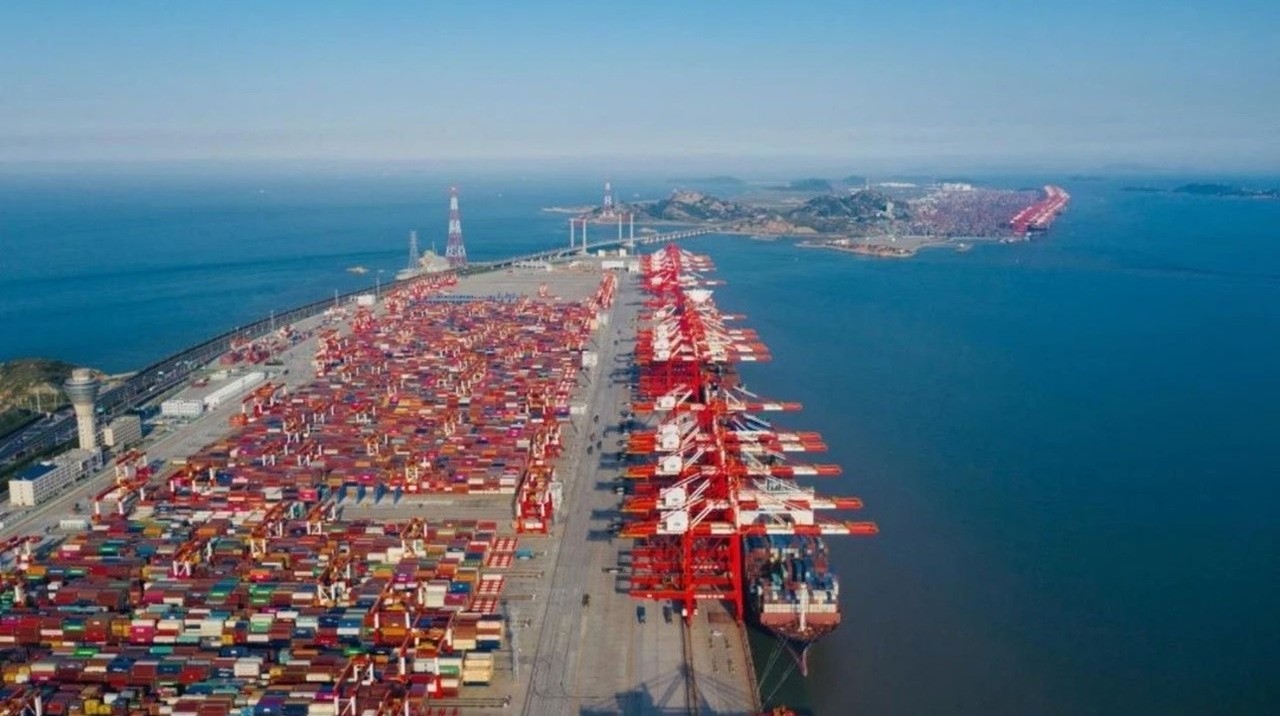
Maersk and MSC’s dissolution of 2M shifts up another gear
The carriers, who earlier this year announced that they would end their co-operation in the 2M consortium, have begun unraveling their jointly operated services, seemingly with a minimum of fuss.
This week Alphaliner reported: “The 2M-partners [are] increasingly moving away from services run with mixed fleets of vessels from both carriers in favor of joint loops that are operated by only one of the two partners.”
The 2M partners had three services operating between Europe and the US East Coast, TA and NEUATL services, numbered one to three. But the major changes will come in the TA/NEUATL 3 which operates from North Europe to the US Gulf.
The Maersk-chartered Northern Majestic, a 7,000 teu vessel was withdrawn from this service a week ago, with the NEUATL 3 now fully operated by MSC ships, however, the carrier will also withdraw the 9,408 teu MSC Desiree from the loop, which will be operated by seven ships of between 5,550 and 6,730 teu.
The rotation will be Antwerp, Rotterdam, Bremerhaven, Newark (New York), Charleston, Veracruz, Altamira, New Orleans, Mobile, Freeport (Bahamas), Charleston, Antwerp.
According to Alphaliner the TA2/NEUATL2 service saw a reduction in capacity in September following the withdrawal of the six vessels of between 6,800 and ,200 teu, which were replaced by six Maersk-operated ships of between 4,130 and 5,100 teu.
Alphaliner added: “Further to these two loops, the ‘TA1 / NEUATL1’ has always been a Maersk-operated service, since the Danish carrier deploys US-flagged ships of 4,820 teu. Maersk’s 2M partner MSC is a co-loader on this loop.”
On the consortium’s Atlantic services’ the analyst said that the TA6/Medgulf has yet to see a redeployment of tonnage and as such remains with a mixed fleet of ships, five MSC vessels of between 7,470 – 9,580 teu and a further four Maersk units of between 6,540 – 7,250 teu.
Canadian services were already outside of the 2M scope, Alphaliner said, with Maersk in partnership with CMA CGM and MSC operating with Hapag-Lloyd and OOCL to Canada’s Atlantic coast and the St Lawrence.
On the Pacific the carriers have organized themselves with each operator providing all the tonnage for each loop.
Such an arrangement is not unusual, said Alphaliner: “This is however not unusual. The Ocean Alliance is organized between Asia and North Europe in a similar way, with whole loops operated by one alliance member which shares the capacity. Same for THE Alliance where ONE is operating the Japan- N Europe loop.”
Meanwhile, Maersk is planning to operate a US, Venezuela, Columbia, and Central America service with French carrier CMA CGM.
Operated as a vessel sharing agreement the carriers will deploy three ships of between 1,500-2,500 teu, two CMA CGM vessels and one Maersk, which will call at Port Everglades, Kingston, La Guaira, Puerto Cabello, Cartagena (Colombia), Puerto Cortes, Santo Tomas de Castilla (or Puerto Barrios), Port Everglades.
Further details on the service, including start date, have yet to be revealed, said Alphaliner.


